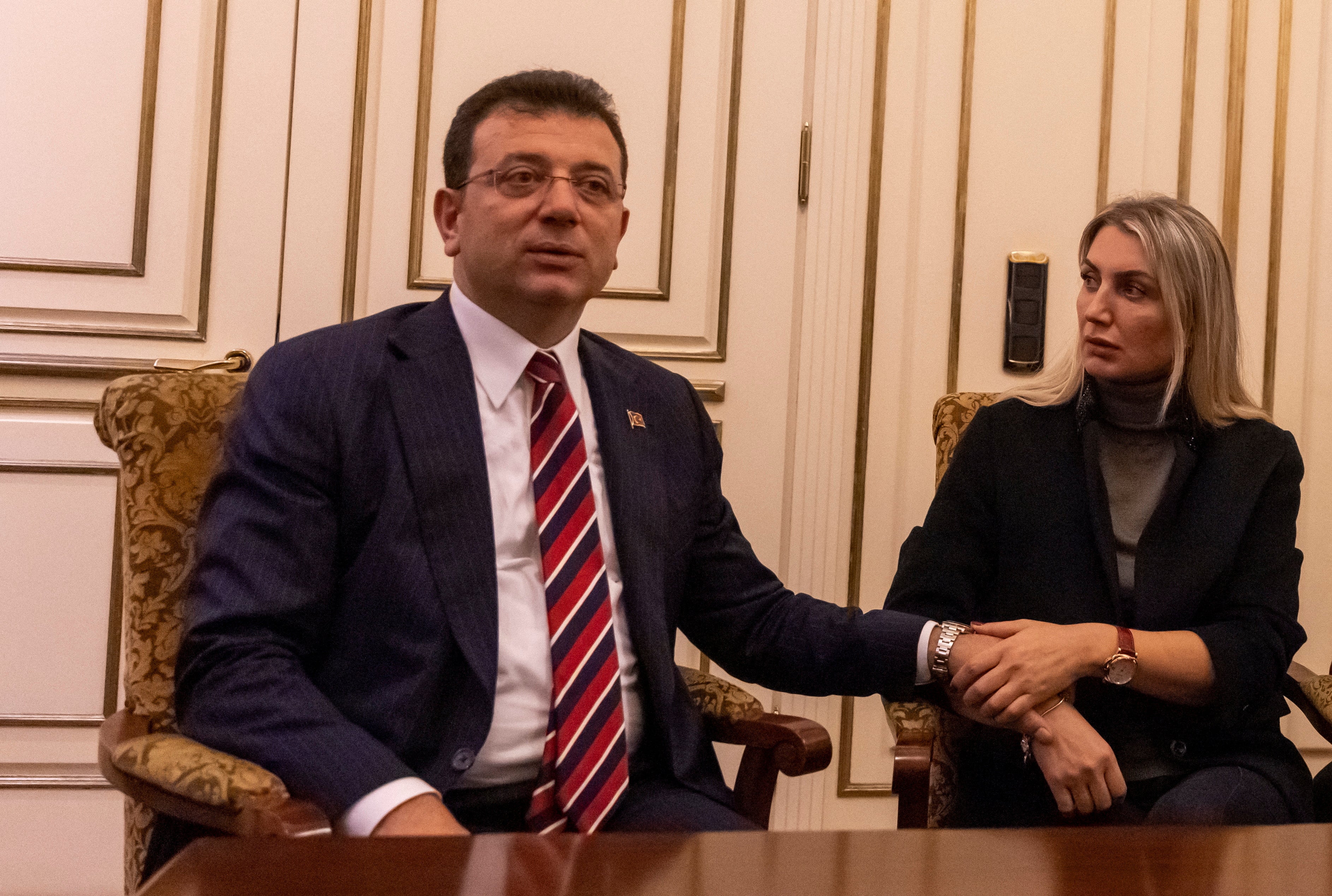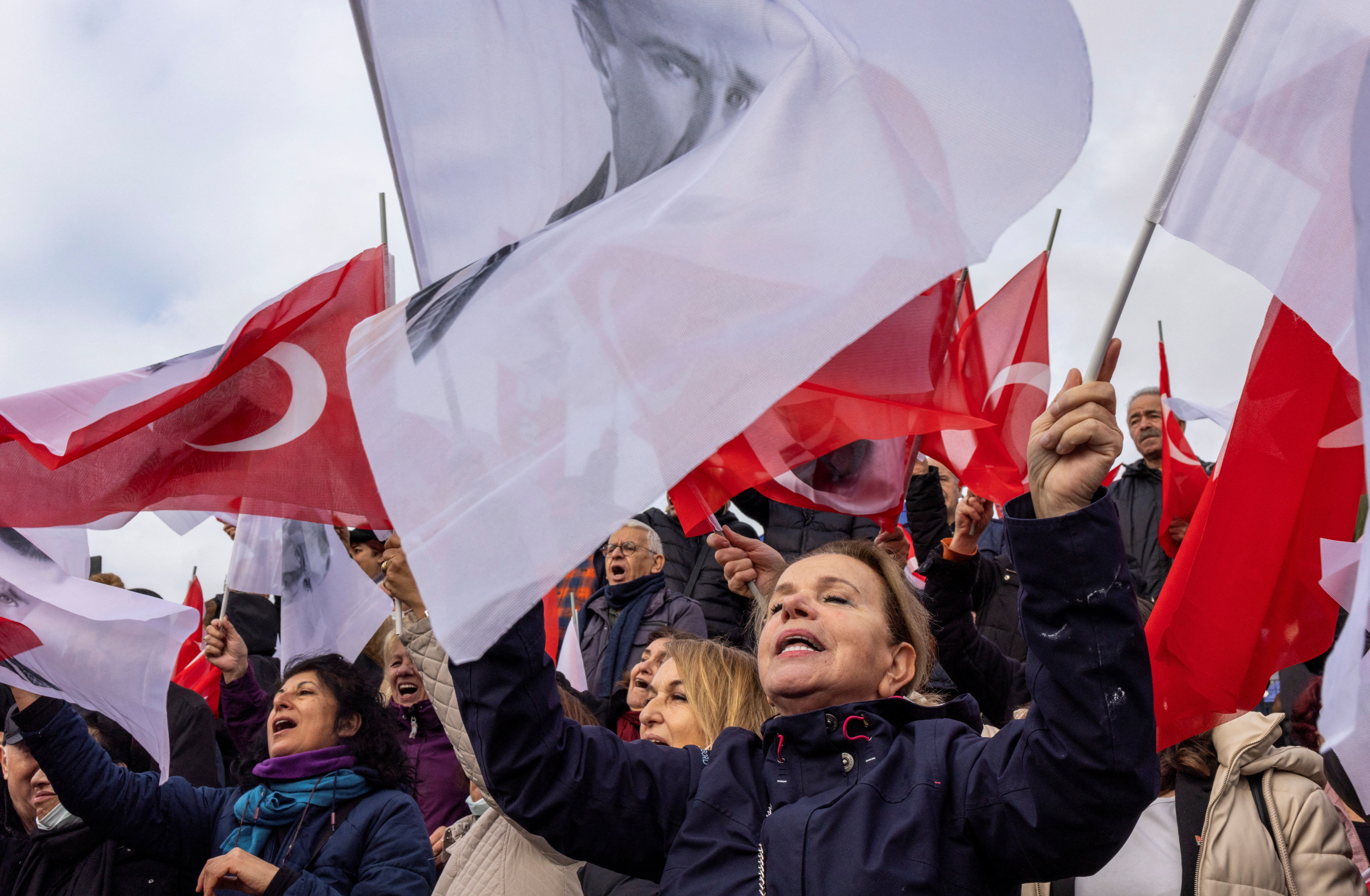Turkey: Erdogan’s most popular political rival sentenced to jail and banned from politics
Anger as president’s most feared political opponent could be banned from next year’s elections

Your support helps us to tell the story
From reproductive rights to climate change to Big Tech, The Independent is on the ground when the story is developing. Whether it's investigating the financials of Elon Musk's pro-Trump PAC or producing our latest documentary, 'The A Word', which shines a light on the American women fighting for reproductive rights, we know how important it is to parse out the facts from the messaging.
At such a critical moment in US history, we need reporters on the ground. Your donation allows us to keep sending journalists to speak to both sides of the story.
The Independent is trusted by Americans across the entire political spectrum. And unlike many other quality news outlets, we choose not to lock Americans out of our reporting and analysis with paywalls. We believe quality journalism should be available to everyone, paid for by those who can afford it.
Your support makes all the difference.A Turkish court has handed president Recep Tayyip Erdogan’s most formidable rival, and the sitting mayor of its biggest city, a 31-month prison sentence and a ban from politics.
Ekrem Imamoglu, a leading figure of the opposition People’s Republican Party (CHP) and a popular politician who consistently polls higher than Mr Erdogan, was convicted on a charge of insulting election officials during his contentious 2019 election campaign.
The prison term likely will not be implemented even if the ruling is upheld by an appellate court as it is below a three-year sentencing threshold.
But the political ban, which would take effect after the appeals process is exhausted, could effectively neutralise Mr Erdogan’s most popular rival ahead of crucial June 2023 presidential elections. The incumbent has been polling poorly because of the dire state of Turkey’s economy.
Mr Imamoglu was convicted on a charge of calling members of Turkey’s Supreme Election Board “fools” after they voted to annul his narrow March 2019 election victory over a candidate of Mr Erdogan’s Justice and Development Party (AKP), Binali Yildirim. Mr Imamoglu won a June 2019 rematch against Mr Yildirim with an even greater margin.
Critics in Turkey and abroad have accused Mr Erdogan and his allies of packing Turkey’s courts with AKP loyalists and using the judiciary as a political weapon. An October 2022 report by the European Union said the “judiciary continued to systematically target members of the opposition parties in parliament” and described a “systemic lack of independence of the judiciary and undue pressure on judges and prosecutors”.
Turkish courts also have jailed Selahattin Demirtas, a leader of the Kurdish-rooted leftist People’s Democratic Party, and Osman Kavala, a dissident philanthropist on what international observers have called trumped-up charges. The Ankara government insists Turkey’s justice system is fair.
Ironically, Mr Erdogan’s political rise was boosted by his jailing at the hands of the country’s rulers in 1997, when he was mayor of Istanbul.
Mr Imamoglu and his supporters were defiant.
“A handful of individuals cannot take away the authority granted by the people,” Mr Imamoglu said during a meeting with opposition figure Meral Aksener that was posted online. “With God’s permission, we will become stronger.”

Kemal Kilicdaroglu, leader of the CHP and another potential rival to Mr Erdogan, called the ruling a “murder of justice”, in a video posted online.
“The CHP will not back down against the tyrants,” said Mr Kilicdaroglu, who was in Berlin for a conference. “We have vowed to get the country out of this darkness. I promise my nation to defeat this wretched coup plotter.”
Mr Erdogan’s opponents have formed a coalition of six liberal, nationalist, centrist, and Islamist parties ahead of the 2023 elections. But they have yet to decide on a presidential candidate in an election that will hinge on voter dissatisfaction with the economy and the turnout and political preferences of ethnic Kurds, who have often acted as a key constituency in Turkish politics.



Join our commenting forum
Join thought-provoking conversations, follow other Independent readers and see their replies
Comments